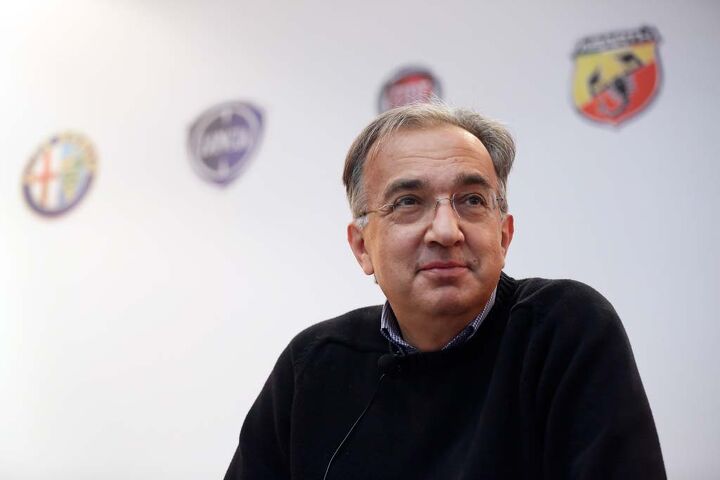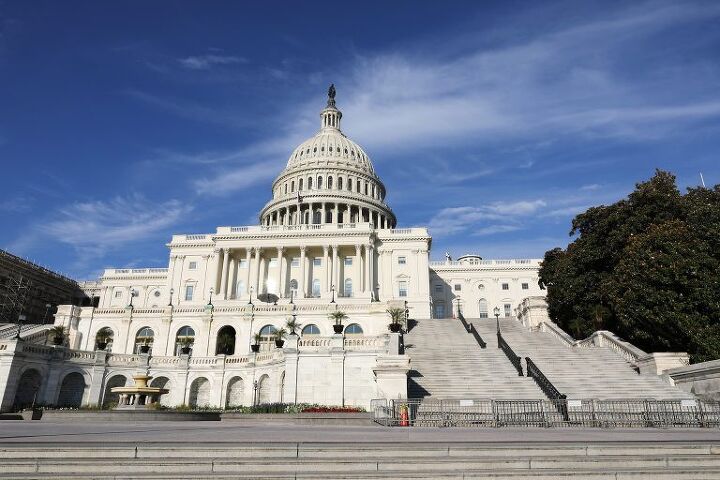#government
Rebuking the Rollback: Science Advisors Claim EPA Ignoring Its Own Fuel Economy Research
Several science advisers for the Environmental Protection Agency claim the agency has ignored its own research in order to rationalize the push to relax corporate average fuel economy (CAFE) targets.
A group within the Science Advisory Board has recommended reviewing the EPA’s justifications for the intended rollbacks, including the agency’s conclusion that Obama-era auto efficiency requirements must be changed because they are too stringent. It’s hoping to take the agency to task and force it to show evidence that upholds is proposal.
While EPA head Scott Pruitt sides with the President and automotive industry by indicating the current standards are too strict, very little scientific research has been cited to support the claim. In fact, the revision seems to hinge mainly on the belief that automakers might not be able to adhere to the standards approved by the Obama administration in its final days. “Obama’s EPA cut the midterm evaluation process short with politically charged expediency, made assumptions about the standards that didn’t comport with reality, and set the standards too high,” Pruitt said in April.
Trade War Watch: China to Reduce Import Tariffs for Cars and Components
China has announced plans to slash import fees on automobiles to 15 percent starting this July. While the tariff currently rides high at 25 percent, the country’s Ministry of Finance said reducing it was part of an intentional effort to open up China’s markets and spur development within the local automotive sector.
It may also have been part of a peace offering. President Donald Trump has been pretty clear on China’s trade policies with the United States, frequently referring to them as unfair. The U.S. imposes a svelte 2.5 percent fee on imported vehicles — unless we’re talking about trucks. “Does that sound like free or fair trade?” Trump tweeted last month. “No, it sounds like STUPID TRADE — going on for years!”
Germany to Cities: Go Nuts With the Diesel Bans, Starting Now
It’s open season on compression ignition vehicles in the Fatherland. The birthplace of the diesel engine now says German cities can implement diesel driving bans whenever, and wherever, they want.
The Friday ruling by the country’s top court comes after a lawsuit against Germany and four other European Union member states by the EU, the result of higher-than-allowed air pollution levels in numerous urban areas.
“Thanks, dad,” the country’s auto industry must be thinking.
Automakers to White House: Make a Deal With California on Fuel Economy
Despite pressuring Donald Trump to lower corporate fuel economy mandates since practically day one of his presidency, automakers are now urging caution. The U.S. Transportation Department has drafted a proposal that would freeze vehicle requirements at 2020 levels through 2026, the Environmental Protection Agency’s lead administrator made a public case for rolling back mileage targets, and the White House seems ready to help car companies lower the bar.
Automakers seem to have won, so why the change of heart?
Sergio CONFIRMED as Trump's 'Favorite' Auto Exec, Hackett and Barra DESTROYED
Ten automotive executives met with President Donald Trump this week, hoping to find ways to increase domestic production and mitigate the coming changes to corporate fuel economy regulations. The meeting, held in the White House’s Roosevelt Room, included General Motors’ Mary Barra, Ford’s Jim Hackett and Fiat Chrysler’s Sergio Marchionne. While a large portion of the event was spent discussing the administration’s attempt to roll back established fuel economy rules, Trump was focused on returning manufacturing jobs to the United States.
The president noted that FCA’s decision to spend $1 billion in order to expand truck assembly in Michigan made Marchionne more appealing than his contemporaries. “Right now, he is my favorite person in the room,” Trump said.
Germany to Continue Probing Winterkorn and VW, but Does That Mean Anything?
Germany intends to stay on ex-Volkswagen Group CEO Martin Winterkorn after news broke Thursday that the former top executive faces criminal charges in the United States.
The indictment, filed under seal in March, was opened in a U.S. District Court in Detroit on Thursday during VW’s annual meeting in Germany. “If you try to deceive the United States, then you will pay a heavy price,” said U.S. Attorney General Jeff Sessions. “Volkswagen’s scheme to cheat its legal requirements went all the way to the top of the company.”
However, the burden of tangible justice will likely fall on Europe. Germany doesn’t make a habit of extraditing citizens for trial, and it’s still conducting its own investigation into VW Group’s emissions-cheating scandal — which it intends to continue.
“Our investigation strategy does not change just because the Americans have filed charges against Winterkorn,” a spokesman for the prosecutors’ office of Brunswick said on Friday. You’ll have to excuse us for not having much faith Germany’s justice system, as its current strategy appears to involve conducting as many raids as humanly possible without any results.
Lawmakers Demand MPG Details, States File Lawsuit Against EPA
America’s gas war is heating after 17 states, as well as the District of Columbia, filed a lawsuit against the Environmental Protection Agency’s decision to redefine U.S. vehicle emissions and fuel efficiency rules through 2025.
In April, EPA chief Scott Pruitt said the existing standards for model year 2022 to 2025 vehicles should be revised. The suit, filed in the U.S. Court of Appeals for the District of Columbia, alleges the EPA acted unpredictably, failed to follow its own regulations, and was in direct violation of the Clean Air Act. New York Attorney General Eric Schneiderman claimed the “Trump administration conducted a phony study” to justify altering emission rules to appease automakers and the oil industry.
Meanwhile, U.S. Representatives Doris Matsui of California and Paul Tonko of New York are demanding the EPA hand over all documents related to the study that resulted in the proposed changes to fuel economy standards.
Pentagon Joins Tech Startups in Race for Autonomous Vehicles
It’s been a rough road for autonomous vehicles. Despite development progressing significantly over the last decade, tech companies and automakers have been confronted with a myriad of issues. There have been intellectual property lawsuits, public safety concerns, and a recent backlash from government officials who are starting to wonder if the entire concept has been oversold.
However, the government still wants self-driving cars, especially the Pentagon. The Defense Advanced Research Projects Agency (DARPA) has been researching autonomous cars since the technology was in its infancy and, with so many firms trying to bring the technology to market, the military sees no reason it shouldn’t be the first.
It’s not like it doesn’t have the money.
EPA Head Defends Fuel Economy Rules, Industry Ties On Capitol Hill
Environmental Protection Agency chief Scott Pruitt spent the majority of his Thursday being raked over the coals by the House Energy and Commerce subcommittee before a second (even uglier) exchange with the House Appropriations subcommittee. The majority of the time was spent addressing concerns surrounding Pruitt’s expenditures — things like unnecessary first-class travel, a $43,000 soundproof phone booth, and his 24-hour security team. There were also discussions about alleged death threats against Pruitt and EPA staff, his overall conduct, and even a little bit on environmental policy.
Those discussions, however, saw some subcommittee members accuse Pruitt of championing the profits of oil companies and automakers over the wellbeing of the planet. The EPA head spent the duration of Thursday defending his actions, including planned regulatory rollbacks on fuel economy. He also supported the automotive industry’s proposal to abolish 87 octane and replace it with 95.
As ugly as the day was for Pruitt, Republicans occasionally hopped on the mic to gently support him. Rep. Kevin Cramer of North Dakota said, “I think the greatest sin you’ve done is, you’ve actually done what President Trump ran on.”
Appeals Court Says Trump Cannot Delay CAFE Penalties
During the Trump administration’s year-long quest to roll back Corporate Average Fuel Economy (CAFE) targets, it attempted to give automakers in violation of the current standards a break by delaying the scheduled increase of penalties. The logic here is that the federal government is reassessing the Obama era standards, so it lumped in the new fines that were supposed to go into effect last July.
Those penalties represent an increase of $8.50 for every tenth of a mile per gallon a new car consumes above the minimum fuel standard. But with the new targets in quasi limbo, the updated fines were not being applied.
On Monday, a federal appeals court ruled the Department of Transportation cannot do that. Since the old rules are technically still in effect, the court ruled that automakers are still subject to the fine.
Are Government Officials Souring On Automotive Autonomy?
Thanks to the incredibly lax and voluntary guidelines outlined by the National Highway Traffic Safety Administration, automakers have had free rein to develop and test autonomous technology as they see fit. Meanwhile, the majority of states have seemed eager to welcome companies to their neck of the woods with a minimum of hassle. But things are beginning to change after a handful of high-profile accidents are forcing public officials to question whether the current approach to self-driving cars is the correct one.
The House of Representatives has already passed the SELF DRIVE Act. But it’s bipartisan companion piece, the AV START Act, has been hung up in the Senate for months now. The intent of the legislation is to remove potential barriers for autonomous development and fast track the implementation of self-driving technology. But a handful of legislators and consumer advocacy groups have claimed AV START doesn’t place a strong enough emphasis on safety and cyber security. Interesting, considering SELF DRIVE appeared to be less hard on manufacturers and passed with overwhelming support.
Of course, it also passed before the one-two punch of vehicular fatalities in California and Arizona from earlier this year. Now some policymakers are admitting they probably don’t understand the technology as they should and are becoming dubious that automakers can deliver on the multitude of promises being made. But the fact remains that some manner of legal framework needs to be established for autonomous vehicles, because it’s currently a bit of a confused free-for-all.
Wells Fargo Fined $1 Billion For Auto Insurance Scandal, Mortgage Misdeeds
Wells Fargo is getting slammed with all kinds of penalties over shady business practices. Currently prohibited from growing its business as investigators look into its practices, the bank has restructured itself after it was implicated in widespread auto insurance and mortgage lending abuse in the summer of 2017. It’s also still coping with an earlier scandal involving local branches opening fake accounts for customers.
Last week, the Consumer Financial Protection Bureau and the Office of the Comptroller of the Currency suggested Well Fargo pay $1 billion to “resolve” the governmental probes into those issues. That changed today when the bureau filed a consent order announcing it was time for the bank to pay up.
The fine applies to the mortgage lending issues, as well as Wells Fargo’s past practice of charging thousands of auto loan customers for insurance they didn’t need and often didn’t even know about. The move caused some borrowers to default on their loans, resulting in their vehicles being repossessed. The consent order mandates that the bank remediate those customers.
China Plans to Open Car Market By 2022
After weeks of unpleasant trade talk and posturing between Washington and Beijing, China’s lead economic planner announced the country would be easing limits on foreign ownership of automotive ventures. While an official metric was not posted, it will be less than the current 50-percent cap non-Chinese automakers have been limited to since 1994. But, for all we know, China may be seeking to scrap the mandate entirely.
We did, however, get a timeline. On Tuesday, the People’s Republic announced it would remove foreign ownership caps for companies making fully electric and plug-in hybrid vehicles this year — followed by commercial vehicle manufacturers in 2020 and the rest of the car market by 2022.
Premium is the New Regular: Automakers Want to Kill 87 Octane
The automotive industry wants to make 95 octane gasoline the new normal for the United States and it has taken its case to Washington. On Friday, Dan Nicholson, General Motors’ vice president of global propulsion systems, told the House Energy and Commerce Committee’s environment subcommittee that switching to 95 octane would align the U.S. with Europe and is one of the most affordable ways to boost fuel economy and lower greenhouse emissions.
Affordable for automakers, that is. Because there is no reason to think your local gas station will suddenly do you a solid and price 95 octane lower just because 87 is gone.
Old Man Lutz Gives Dealerships 20 Years to Live, Doubles Down on Driving Dystopia
Longtime auto executive Bob Lutz has always been an incredibly outspoken individual. His years of hard work have given him an insight into the industry that few possess, and he’s only become more willing to share that information as he ages. Like the industrious caterpillar, his ceaseless labor has allowed him to metamorphose into what is arguably his perfect form near the end of his lifecycle — a candid automotive butterfly.
We love hearing anything has to say, as his insight borders on the surreal, but with more than enough truth to come to pass. Last year, he divined a future where the car as we know it is destroyed by governmental regulation and advanced technologies. The dystopian plot seemed impossible upon a cursory glance, but the deeper you drive, the more plausible it begins to seem.
Lutz refocused this week at the SAE International WCX World Congress Experience in Detroit, saying the traditional dealer model will be among the first things to go in the brave new world of mobility. He called car dealerships an “endangered species,” suggesting to the crowd that it had “another 20 to 25 years before it’s all over.”






























Recent Comments